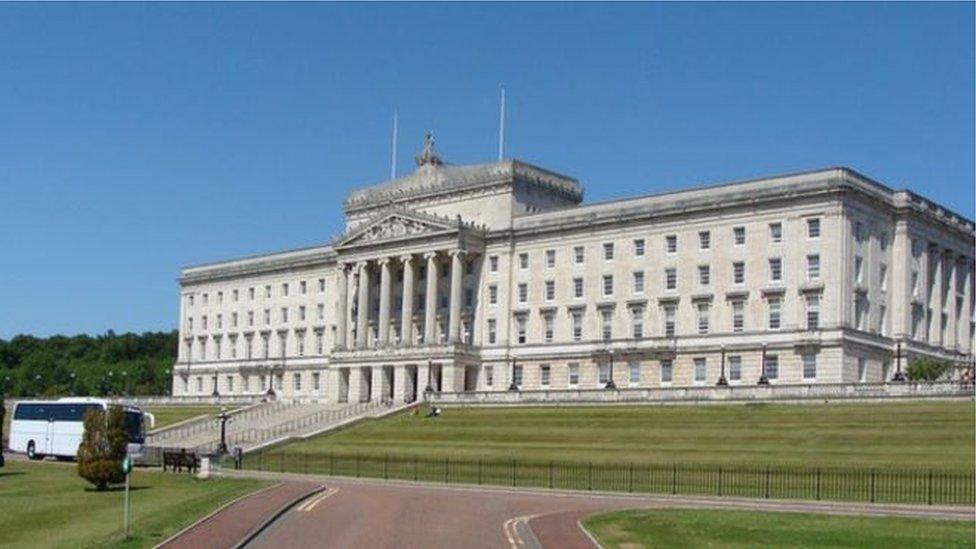Stormont in crisis: What next for the budget?
- Published

What will happen if politicians are not in a position to produce a budget?
The political crisis means that the Northern Ireland Executive still has not agreed a budget for the 2017/18 financial year.
So what happens next?
If the politicians are not in a position to produce a budget, the civil service could take over.
Legislation allows the permanent secretary in the Department of Finance to take control if a budget act has not been passed at least three working days before the end of the financial year.

Executive-funded groups may have to put staff on notice of redundancy as they cannot guarantee funding
The official can access a sum of money not exceeding 75% of this year's budget and direct how it is spent.
If we get to the end of July and there is still no deal that official then has the right to spend an amount equivalent to 95% of this year's budget.
So that implies significant in-year cuts at Stormont unless a budget is produced by either an Executive or a direct rule minister.
This contingency plan was mooted during a previous budget crisis but was described by the then Finance Minister Arlene Foster as "dramatic and draconian."
'Budget uncertainty'
The current finance minister, Máirtín Ó Muilleoir, has emphasised that the legislation means "monies will continue to flow".
However the TUV leader Jim Allister, who is also a senior barrister, said his reading of the law suggests it will not be so straightforward.
He believes that the Executive must at least issue a draft budget before the permanent secretary is empowered to take control.
Short of that, he thinks it could require emergency amending legislation at Westminster.
Whoever is correct, the budget uncertainty will have an impact.
Voluntary and community groups which rely on Executive will shortly have to put staff on notice of redundancy as they cannot be sure what funding they will get in the coming financial year.